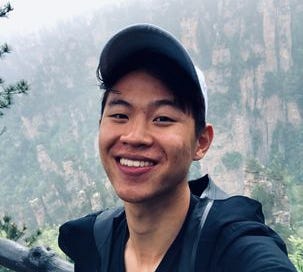Each Sunday night, we ask a thought leader to share a perspective in and around AAPI culture. This week, we’re delighted to have Christopher Chen share his thoughts on the place that the words "i love you" hold for Asian American immigrant children.
(original post dated March 21, 2022)
Christopher Chen graduated from Brown University studying Computer Science and East Asian Studies. He was one of the first engineers at the security startup Vanta. He is currently writing his fictional podcast, Some way home, a story based on his own experiences navigating his relationship with his parents.
“Do your parents say, I love you?”
Now that most of my peers and I have moved out from our childhood homes, there usually isn’t too much to talk about when it comes to our immigrant parents. I might hear a quick mention about visiting for a few days, or listen to a dismissive comment about their mom telling them to freeze their eggs. I get the sense that we all inevitably come to terms with our relationships with our parents. “It is what it is.” For better or worse, the relationship that I have with my parents is one I’ve most relegated to being fixed in stone. So when my friend asked me that question, it was strange when it lingered.
As Chinese immigrants, my parents did not bring those words, “I love you” with them to America. Those weren’t words that they grew up with. Those weren’t words that I grew up with. Those were words for Ryan Gosling and Rachel McAdams. Those were words for families on the Disney Channel. Those words sometimes still taste like sandpaper in my mouth.
We grew up with fruit on the table, family dinners delayed for moms and dads coming home late, and reminders to put on our jackets. We grew up with a different language of love. One that has slowly made its way into writing and media, and one that only became recognizable with distance and time. So why did that question, “Do your parents say, I love you?” still linger?
It lingers not because I still crave some American or Western style phrase of affirmation or approval. It lingers not because I still wish my childhood were some other particular way. It lingers not because I wish I knew the words to old Beatles songs and could tell people about the Carpenters.
It lingers because I still hope that myself, my parents, and our relationship can still change. It lingers because I still hope that we can have a relationship that isn’t based on parenting and being parented. It lingers because I still hope that my parents can understand me the way I understand myself, and that I can understand my parents the way that they understand themselves. It lingers because I still hope that there is still time to grow together, rather than being resigned to the ways things are.
My hope is not a hope that my parents brought from where they were born. My hope is a hope that I bring from where I was born. My hope is a hope because we are a Chinese home, an Asian home, and a home that is filled with foods that I don’t know the English names for. My hope is a hope because we are an American home, a Western home, and a home that played the Disney channel all the same.
So now when my mom says “I love you,” or hangs up with a quick “love you,” on the phone, I know I’ve discovered a secret. When my dad surprises me by honestly listening to my suggestions, and might let out a “you’re right,” I know I’ve unraveled a mystery. It may be slow, and it may be small, but we are more than parents and children who can say that we love each other. We can change for each other.
…
I also asked 120 Asian Americans if their parents say, “I love you” along with a few other questions. You can take the survey yourself and see the results here:

The data I collected itself wasn’t the remarkable part. The best parts have been the conversations I’ve had with other people — they helped me get to the core of why, despite everything that I understand about different love languages and my own family, that question stuck with myself, and I think with others. That’s this essay. If you’d like to follow along with more specific updates from this project itself, or my next storytelling project, follow me on Twitter. You can also follow my progress working on a fictional podcast telling another Asian American story, Some Way Home.
If you’d like to contribute a Cultural Perspectives guest post, please reach out! jd@crushingthemyth.com
And, please share if you enjoyed this week’s Cultural Perspectives post:
We appreciate you.
— JD, founder, Crushing The Myth





